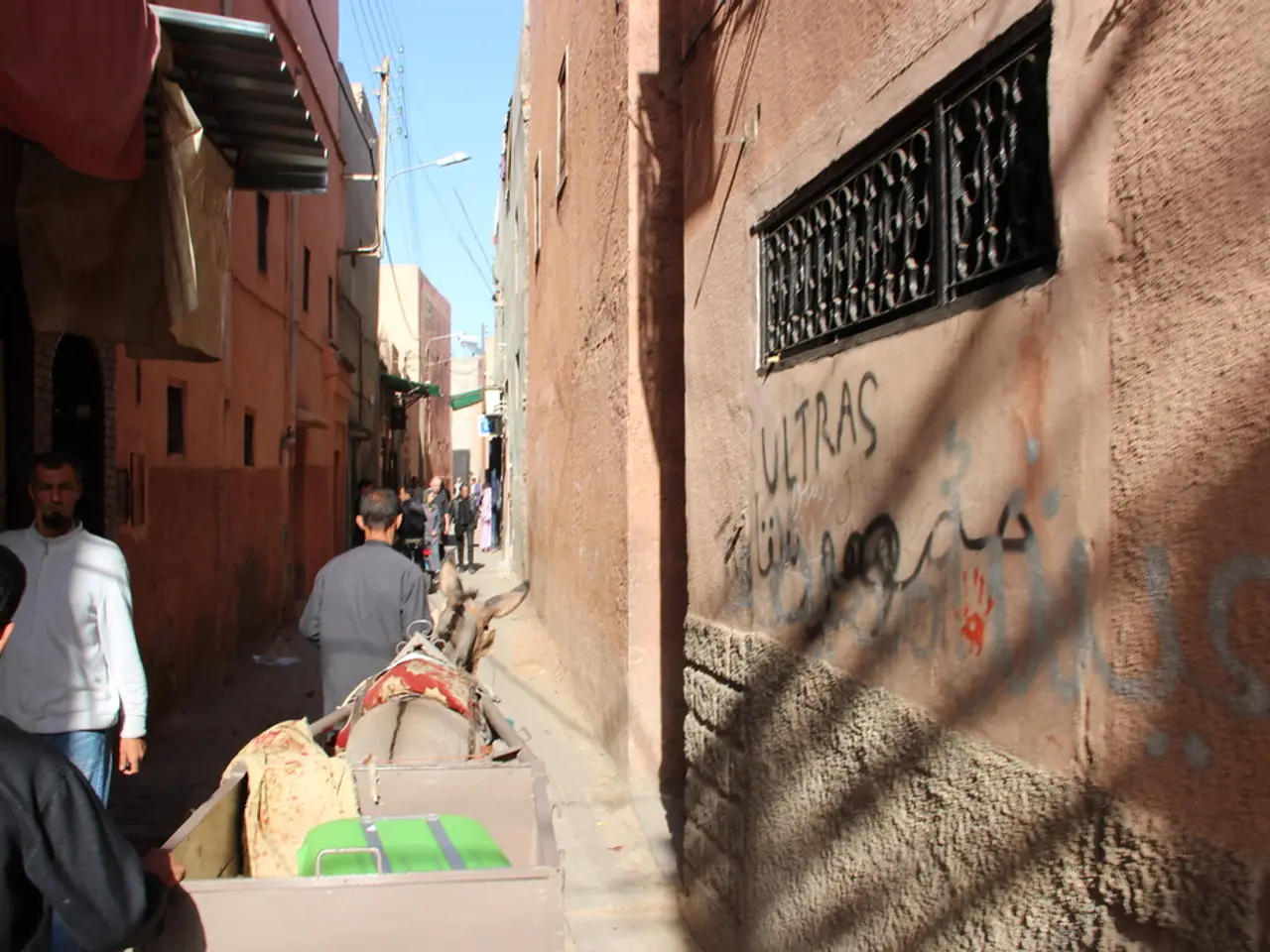International courts and ongoing conflict in Gaza: Can justice effectively intervene to halt and prosecute culpable actions?
In the heart of The Hague, Netherlands, two significant international judicial bodies work tirelessly to ensure justice and maintain peace: the International Court of Justice (ICJ) and the International Criminal Court (ICC).
Roles
The ICJ, a primary organ of the United Nations, primarily settles disputes between states and interprets international law. On the other hand, the ICC is a permanent international tribunal that investigates and prosecutes individuals for international crimes such as genocide, war crimes, crimes against humanity, and the crime of aggression.
Funding
The ICJ is funded by the United Nations and receives contributions from its member states based on their UN membership dues. In contrast, the ICC is funded by its member states, which are parties to the Rome Statute, with the largest contributors being major European countries. The ICC also receives occasional voluntary contributions from other states and organizations.
Historical Actions
Historically, the ICJ has been involved in several notable cases, including disputes over territorial claims and sovereignty, environmental issues, and maritime boundaries. However, it does not have jurisdiction over individual criminal cases. The ICC, on the other hand, has issued arrest warrants for several high-profile individuals, including heads of state.
Impact on the Gaza War Conflict
The ICC's involvement in the Gaza conflict could have significant implications. In 2024, the ICC issued arrest warrants for Israeli Prime Minister Benjamin Netanyahu and former Israeli Defense Minister Yoav Gallant, as well as Hamas leader Mohammed Deif, for alleged war crimes and crimes against humanity. This has heightened tensions and sparked political debates, particularly since Israel is not a member of the ICC.
The ICC's actions could influence how future conflicts are handled, as parties may be more cautious to avoid legal repercussions. However, the lack of cooperation from non-member states can limit the ICC's effectiveness in enforcing these warrants.
Potential Impacts of Arrest Warrants
The ICC's arrest warrants against political leaders can strain diplomatic relations and raise questions about the Court's impartiality and authority. However, these warrants can also highlight the need for accountability and potentially deter future crimes, as leaders may be more inclined to consider legal consequences for their actions.
In summary, while the ICJ focuses on inter-state disputes and the ICC on individual criminal accountability, both courts play crucial roles in international justice. The ICC's actions in the Gaza conflict and its arrest warrants for political leaders have significant political and legal implications. Both the ICJ and the ICC are important institutions created to ensure international peace and security.
Read also:
- Court petitions to reverse established decision on same-sex marriage legalization
- Proposed Standardization of Food Labeling Laws Among Member States by the Commission
- Commemoration of 200 Days of American Resurgence Unveiled
- Minister Bärbel Bas expresses doubts about her tenure as a minister following a recent interview during the summer.








